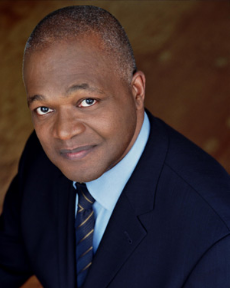
Last week, Sam Sullivan was elected mayor of Vancouver with 47.3 percent of the vote. His closest challenger, Jim Green, had 44.5 percent of the vote. The third place candidate, James Green, had a little over three percent. What would have happened if James Green was not on the ballot? Were all or most of his voters just confused Jim Green supporters? Possibly. Were some of them people who would never have voted for Jim Green? Also likely. Unfortunately, we will never know the true answer.
We do know that Vision Vancouver believes that democracy was undermined by James Green stealing their votes. This is really just another version of an argument we hear from major parties in virtually every election, that smaller parties with similar platforms are stealing their votes. The NDP spent the last provincial election telling Green Party supporters not to waste their votes by splitting the left. The BC Liberals spent the 1996 election telling Reform BC supporters not to waste their votes by splitting the right. The James Green name issue is just another manifestation of the vote splitting fear that arises from our first past the post system.
Under our single-vote 'plurality' system, the winner of an election is the candidate who received the most votes, regardless of whether or not those votes represent a majority of votes. Minority victories such as Sullivan's are par for the course: for instance, in May, 36 of BC's 79 MLAs were elected with less than 50 percent of the vote in their constituencies.
Time for a ranked ballot
This would not have happened if Vancouver had adopted a ranked-ballot system to elect its mayor. Under such a system, voters indicate their first-choice candidate with a '1' and their second-choice candidate with a '2', continuing for as long as they wish. Ballots are then transferred until a single candidate has reached the threshold of 50 percent set for election. This system is called 'alternative voting' or 'instant run-off voting'. It has, over the last twenty years, become the method of choice for political parties in leadership elections and nomination meetings. And yet, what parties have recognised is a better electoral system for their own internal elections, they have failed to promote it for the general public.
Fair Voting BC, and other electoral reform advocates, have been advocating for years that Vancouver, and other large cities, should adopt exactly such a system for electing their mayors, in conjunction with a similar ranked-ballot system, STV, for electing councillors.
Ironically, Jim Green and COPE were elected in 2002 with a mandate to improve the electoral system in Vancouver. However, instead of appointing a citizen's assembly to look at all the options, they appointed a commission which recommended a single-member 'ward system' for council elections. This is the same system we use to elect our MLAs, and would have resulted in the same plurality issues that we have today.
Sam Sullivan, on the other hand, opposed the wards and actively supported the STV system (in the provincial referendum) recommended by the BC Citizens Assembly. Sam could have still won under a transferable ballot election, but Jim Green might have stood a better chance.
STV at the city level?
Vancouver residents rejected the ward system in a referendum, but more than 60 percent of Vancouverites chose STV in May. It is easy to imagine that if COPE has been more open to other forms of electoral reform, city residents would have voted for ranked-ballot voting for municipal elections. During his three-year term as a COPE councillor, Jim Green spoke often in favour of the ward system. Not once did he ever suggest that he had a concern that mayors or other elected officials could be returned with less than 50 percent of the vote.
Mayor-elect Sam Sullivan and his new council now have an opportunity to put our voting system right, so that the next election has a clear winner. Let's have a Citizens' Assembly for Vancouver, and get a modern voting system which gives the real choices to the voters.
Bruce Hallsor is the President of Fair Voting BC. Julian West is a director of Fair Voting BC. ![]()















Tyee Commenting Guidelines
Comments that violate guidelines risk being deleted, and violations may result in a temporary or permanent user ban. Maintain the spirit of good conversation to stay in the discussion.
*Please note The Tyee is not a forum for spreading misinformation about COVID-19, denying its existence or minimizing its risk to public health.
Do:
Do not: